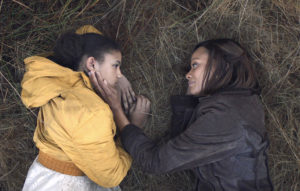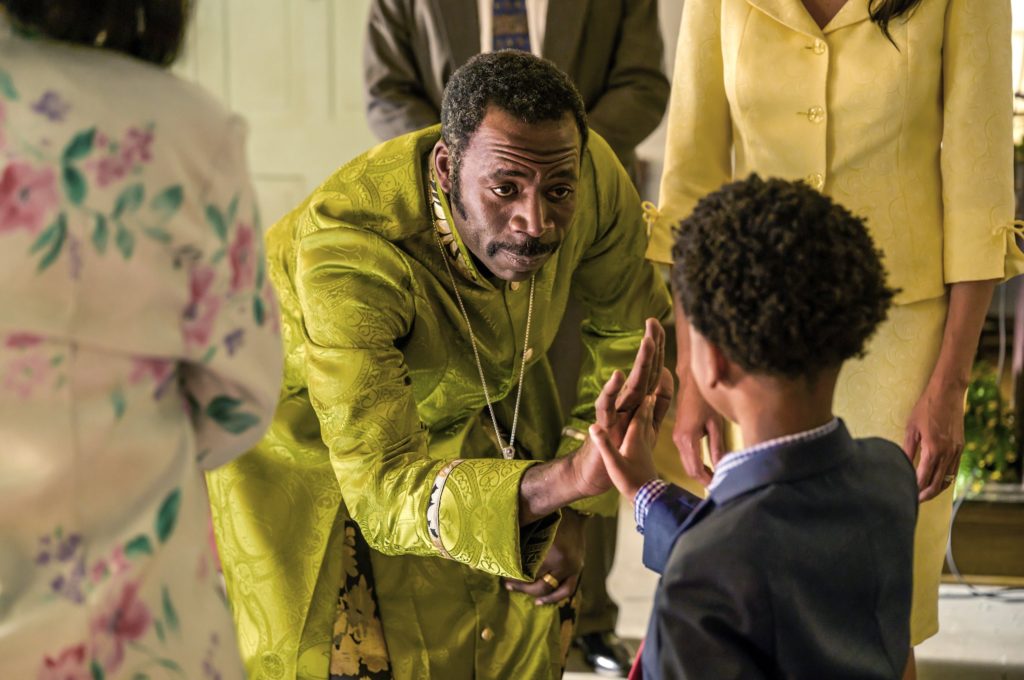Angel Studios, an independent media company known for its Christian-themed films, made a serious splash in Hollywood last year with its surprise box office success “Sound of Freedom.” The film’s depiction of the world of child sex trafficking and exploitation made it hard to watch, even if some of its most appalling details were artfully glossed over.
The studio’s newest offering, “Sound of Hope: The Story of Possum Trot” (released in theaters July 4), is more of a feel-good project about foster care and adoption and the way that charity begins at home, but shouldn’t end there.
As a mother by biology and also by adoption, I watched the film with great interest. I recognized myself easily in the main character, a wife and mother who is suddenly “called” to bring an unrelated child into her family. That, I can attest to, is exactly how it goes: One day you are busying about your life, keeping a thousand plates in the air that belong to you by marriage and biology; the next, you are itching to go find that dented and scratched ceramic dish that no one loves on a forgotten shelf, and send it shining and bright, alongside your own cherished crockery.
Why shouldn’t the brimming affection enjoyed in your family not spill over to a child that is facing the world alone? Once convinced of the urgency of the situation, there is no stopping the desire to change your world forever.
Like the mother in the movie, I also had to convince my husband. I think we had exactly the same conversations. “But dear, don’t you think our lives are already chaotic and overfilled?” And our response: “God wants us to complicate our lives more! Pray about it and you’ll see.” And somehow, because God is capable of anything, what was clear to one person becomes clear to her husband, and then to the rest of the family and wider community.

In the “Sound of Hope,” that family sets off a firestorm of adoption and foster care in their church community.
More than70 children were eventually taken out of the foster care system in the area, depleting the entire supply. Generosity and audacity are contagious, and that love grows not when it is hoarded but when it is spread lavishly. Movie makes present how the blessings in these new relationships are mutual, running from child to new family and back again, gathering force in the back and forth. In adoption, what seemed near improbable in contemplation becomes obviously pre-ordained when the new little one becomes a member of the family, with all that membership entails. Somehow, it was all meant to be exactly as it was, even though the road was hard, especially for the child.
And that is where “Sound of Hope” impressed me the most. When people ask me about adoption, I like to give them the unvarnished truth. I don’t want them to have a rose-tinted or romantic view about something that, in reality, is often more complicated than birthing and raising biological children.
Adoption is a beautiful answer to the problem of a child that finds herself alone and unloved. My own child, for instance, was abandoned at birth, and found wrapped in a little yellow blanket on a cold sidewalk in December. The intense love we have for her and our constant attention and support cannot erase that hard beginning of her life. She has to carry that with her always.
And carrying that is hard, even in relatively easy circumstances like the ones of our adoption. Overcoming the natural distrust of a child who has been raised for years in an atmosphere of abuse and dysfunction (like some of the cases depicted in “Sound of Hope”) doesn’t happen quickly or without a great struggle.
Even in our own, we have had to help our daughter confront the difficult questions stemming from her abandonment. My husband likes to say to her, “I don’t know why your father and mother were driven to that extremity. I do know that God made you for us, and us for you. Of that I am certain.”
In “Sound of Hope,” which is based on a true story, we find that same realism. We see that the hurts and wounds of the children are dressed and tended, but the scars remain. This is what foster care and adoption is: a calling like any other. Not a magic carpet ride into a happily-ever-after future but a deeply human dive into the heart of love, at the urging of the Spirit that knows better than us what we are capable of.

